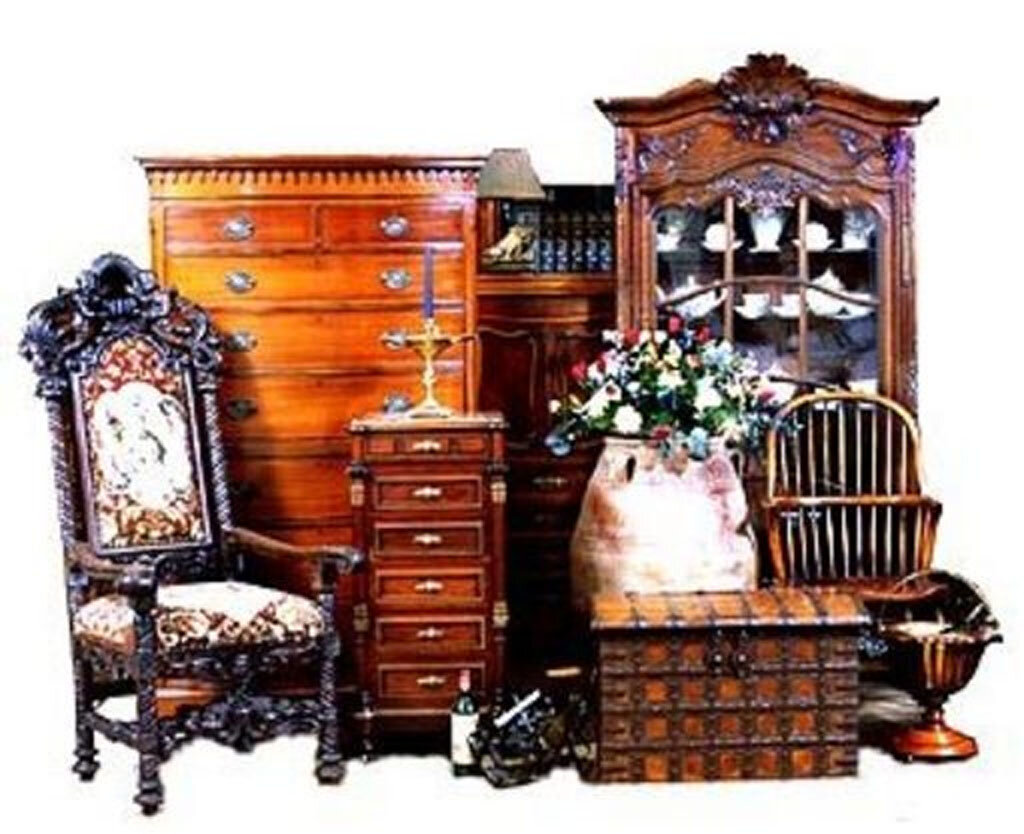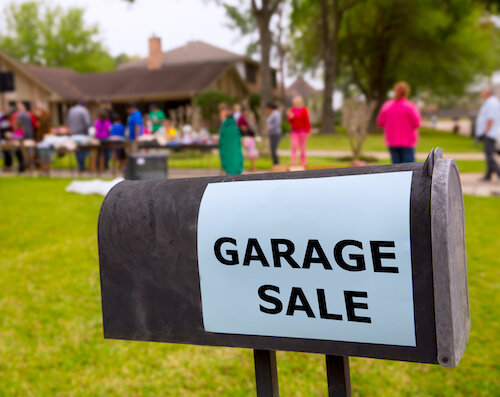- What is an estate sale?
- How do I know if I need an estate sale?
- How do I choose the right estate sale company?
- What items can be sold at an estate sale?
- How are items priced at an estate sale?
- What percentage does the estate sale company take?
- How long does the estate sale process take?
- What happens to unsold items after the sale?
- How do you advertise an estate sale?
- Do I need to be present during the estate sale?
- What should I do to prepare for an estate sale?
- How does the estate sale company ensure the security of my items?
- What is the difference between an estate sale and a garage sale?
- Can high-value items be sold at an estate sale?
- How are sentimental items handled during an estate sale?
- What is the best time of year to hold an estate sale?
- How do you handle pricing negotiations?
- What are the benefits of using an estate sale company vs. DIY?
- Can an estate sale be held if the property is still occupied?
- How do I know the true value of my items?
- What types of payment do you accept at estate sales?
- Can I set a minimum price for my items?
- How do you handle items that are not suitable for sale?
- What kind of cleanup is involved after the sale?
- How do you handle disputes or issues that arise during the sale?

The Ultimate Guide to Estate Sales: Top 25 FAQs Answered
When it comes to holding an estate sale, many people find themselves with a too many questions. To help you navigate this process, we’ve compiled a list of the top 25 frequently asked questions, sorted from most important to less important. Whether you’re downsizing, moving to a new home, managing a loved one’s estate, or simply decluttering, this guide will provide you with the essential information you need.
1. What is an estate sale?
An estate sale is a sale conducted to liquidate the personal property of an estate. This can happen for various reasons, such as the death of the owner, downsizing, moving, or divorce. Estate sales are usually held on-site and can include a wide variety of items, from furniture and antiques to household goods and collectibles. This will also include jewelry, personal clothing and shoes, right on down to toilet paper and paper towels. Yes, we do sell those things too. The way we see it is, if someone spent their money to buy it, why shouldn’t we be able to re-sell it. Even canned goods from the cabinets can be sold, if they are not out of date, we sell them.
2. How do I know if I need an estate sale?
If you have a significant amount of personal property that needs to be sold, an estate sale is often the most efficient way to handle it. This is particularly true if you’re dealing with the contents of a deceased relative’s home, moving to a smaller residence, or simply wanting to declutter your space. Once it is all sorted out and placed in a proper manner, it all seems to come together, but, the most important part is that we are showcasing someone’s life, even though we are selling the belongings.
3. How do I choose the right estate sale company?
Choosing the right estate sale company involves researching and interviewing multiple companies. Look for companies with good reviews, clear contracts, and experience in handling sales similar to yours. Ask for references and make sure they are licensed and insured.
Or, call us, 727-487-1753
4. What items can be sold at an estate sale?
Almost anything can be sold at an estate sale, including furniture, antiques, collectibles, jewelry, household goods, tools, and even vehicles. The key is to have a variety of items to attract different types of buyers. When the company advertises the sale, having many pictures in their ad helps people understand what is there to look at for purchase. The more the better.

5. How are items priced at an estate sale?
Items are typically priced based on their market value, condition, and demand. A professional estate sale company will use their expertise and research to price items appropriately, ensuring you get the best possible return.
Many people live consistently the same as others in the area they are in. If a certain store that sells what most people a likely to buy, then more than likely, people will see some of the same items they use also.
While the living styles may be far different, an estate may hold some very unique items that were collected over the years, which are not native to the area. This is what brings buyers to the sales.
6. What percentage does the estate sale company take?
Estate sale companies typically take a commission of the total sales, ranging from 30% to 50%. This fee covers their services, including pricing, marketing, and managing the sale.
The services can include, organizing, cleaning of some of the items, and setting items up to attract buyers.
Many companies bring their own tables, and some even use tablecloths to place items on which is more appealing to the eye for buyers.
7. How long does the estate sale process take?
The entire process, from initial consultation to the end of the sale, can take anywhere from a couple of weeks to a few months, depending on the size and complexity of the estate.
If there is a large home involved, sifting through everything takes time, and to put this mildly, if it is broken or unusable, it usually gets disposed of before the sale. Most of the time a sale should take 2-3 weeks to set up and hold.
8. What happens to unsold items after the sale?
After the sale, unsold items can be donated to charity, sold to a liquidation company, or disposed of according to your wishes. Some estate sale companies offer cleanout services to handle this process for you.
In reality, not everything will sell in many cases. I believe every company tries very hard to sell everything they can to make the most of the sale.
9. How do you advertise an estate sale?
Estate sales are advertised through various channels, including online listings, social media, local newspapers, and email lists. Professional estate sale companies have established networks to ensure maximum exposure.
There are still many areas where signage is used locally. This alerts the neighboring area that there is a sale, and people that see the sale elsewhere, also know where the sale is being held through the use of signs.
10. Do I need to be present during the estate sale?
No, you do not need to be present during the sale. In fact, many people prefer not to be there. The estate sale company will handle all aspects of the sale, allowing you to focus on other matters.
This is also for good reason. If someone related to the items being sold has sentimental value, their sentiment, may cause something priced properly to being sold, cause it not to be sold. For this reason we don’t allow related parties to attend the sale. If it is something they value, it should be removed well before the sale.
11. What should I do to prepare for an estate sale?
Preparation involves decluttering, organizing items, and identifying what you want to keep, sell, or donate. The estate sale company will guide you through this process and handle most of the setup.
Our tagline is, “Take what you cherish and leave the rest to us”.
Sometimes, before we get called, someone has usually taken the time to go through and remove items that won’t be sold. Often if the home is large, it doesn’t get completely checked. In some cases, the person who we are dealing with for the sale even lives out of state.
12. How does the estate sale company ensure the security of my items?
Professional estate sale companies use various security measures, such as hiring security personnel, using surveillance cameras, and strategically placing staff throughout the sale to monitor activity and prevent theft. Usually large or expensive items are not easily carried off, but smaller items are generally placed where they can be monitored at all times.
13. What is the difference between an estate sale and a garage sale?
An estate sale involves the sale of a large number of items from an entire estate, often inside the home, and is managed by professionals. A garage sale is typically smaller, held outdoors, and managed by the homeowner.

14. Can high-value items be sold at an estate sale?
Yes, high-value items such as antiques, collectibles, jewelry, and artwork can be sold at an estate sale. These items often attract serious buyers and collectors. Many collectors will show up at the sale very early on the first day. It’s the FOMO, fear of missing out, syndrome. Some will only look for certain items, and will ask when they enter if there are any of a certain item, if there isn’t they move on.
15. How are sentimental items handled during an estate sale?
Sentimental items can be set aside and not included in the sale. It’s important to identify these items beforehand and discuss your wishes with the estate sale company.
If someone wants an item or many, the best way is to remove the items before the sale. Frequently we use an extra room to place these in and make it off limits to everyone, this can help in the speed of the sale and nobody asking questions about things they can’t see.
16. What is the best time of year to hold an estate sale?
While estate sales can be held year-round, spring and summer are often the most popular times due to better weather and increased buyer activity. Winter months can be tough in certain parts of the country, but can be done if the sale company is good with their advertising.
17. How do you handle pricing negotiations?
Estate sale companies typically price items to allow for some negotiation. Experienced staff will handle negotiations with buyers to ensure fair prices while maximizing your returns.
The sale company has the job of balancing the negotiations. If there is some room to negotiate a fair price, they can usually handle it.
Let’s face it, everyone wants a good deal nowadays, and if items are priced right to sell, there is not much need to negotiate. Some people are just plain cheap also. They seem to think they are entitled to purchase for less than the price tag shows, and it is up to the sale company whether to accept or not.
18. What are the benefits of using an estate sale company vs. DIY?
Using a professional estate sale company ensures that you get expert pricing, marketing, and management, which can lead to higher sales and less stress. DIY sales can be time-consuming and may not attract as many buyers.
This is especially important when the seller is not local, as many sale companies already have followers that will show up to their sales where if you DIY, you may not be aware of these needed buyers.
19. Can an estate sale be held if the property is still occupied?
Yes, estate sales can be conducted in occupied homes. However, it’s essential to secure and clearly mark any areas or items that are not for sale. Generally not the way to hold a sale, but it can be done if done with this in mind.
20. How do I know the true value of my items?
Professional estate sale companies have the expertise to accurately appraise items. They use market research, experience, and sometimes external appraisers to determine value.
If a sale company has been holding sales for awhile, they most likely have had some exposure to the most common items, and can price them correctly, and when it comes to something truly unique, they know to reach out for help.
21. What types of payment do you accept at estate sales?
Most estate sales accept cash, credit/debit cards, and sometimes checks. It’s important to verify accepted payment methods with the estate sale company beforehand.
While cash certainly is king, the use of credit cards is now being the most preferred way to go.

22. Can I set a minimum price for my items?
Yes, you can set minimum prices for certain items. Discuss your expectations with the estate sale company to ensure they understand your requirements. The only thing you have to keep in mind is that the item may not sell, so you will need to know up front what the sold price will be, and be willing to accept that it did not sell if it doesn’t.
23. How do you handle items that are not suitable for sale?
Items that are not suitable for sale can be donated, recycled, or disposed of. The estate sale company will help you decide the best course of action. If you wouldn’t purchase it based on condition, why would someone else buy it?
24. What kind of cleanup is involved after the sale?
After the sale, the estate sale company typically offers cleanup services, which may include removing unsold items, cleaning the premises, and restoring the space to its original condition.
As many homes are going to be sold, or are already under contract to be sold, sale companies want to make the home ready for the next person, with the least amount of work for the homeowner.
25. How do you handle disputes or issues that arise during the sale?
Professional estate sale companies have protocols in place to handle disputes or issues. They will mediate any conflicts and ensure a fair resolution for all parties involved. Holding an estate sale can be a complex process, but with the right information and professional support, it can be a smooth and successful experience. If you have any additional questions or need assistance with your estate sale, feel free to contact us. We’re here to help you every step of the way.
When you need us, click here!
